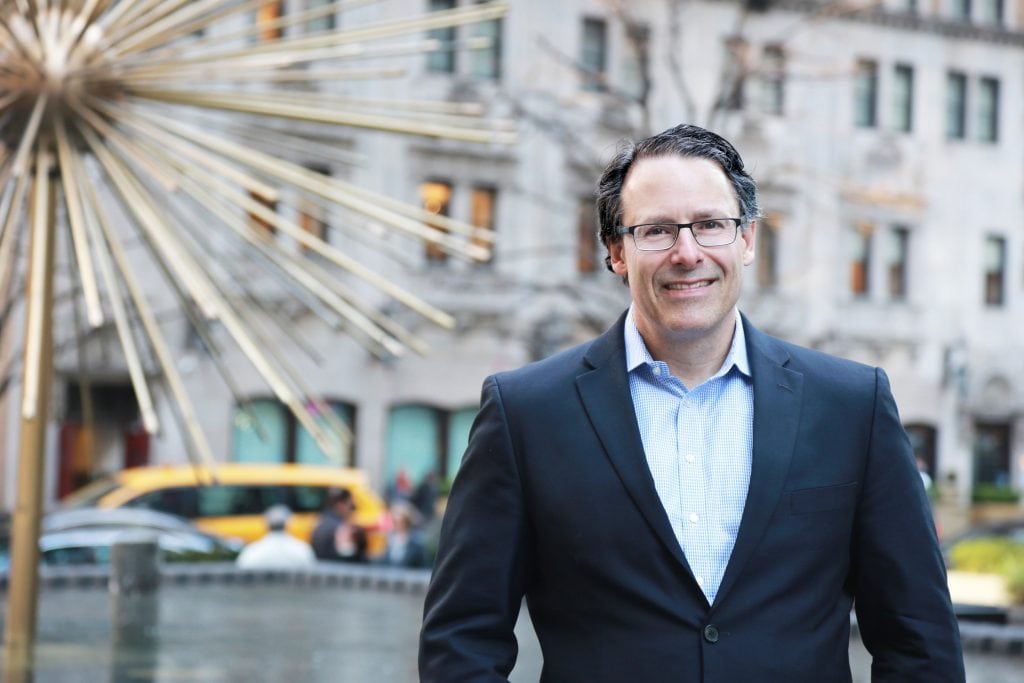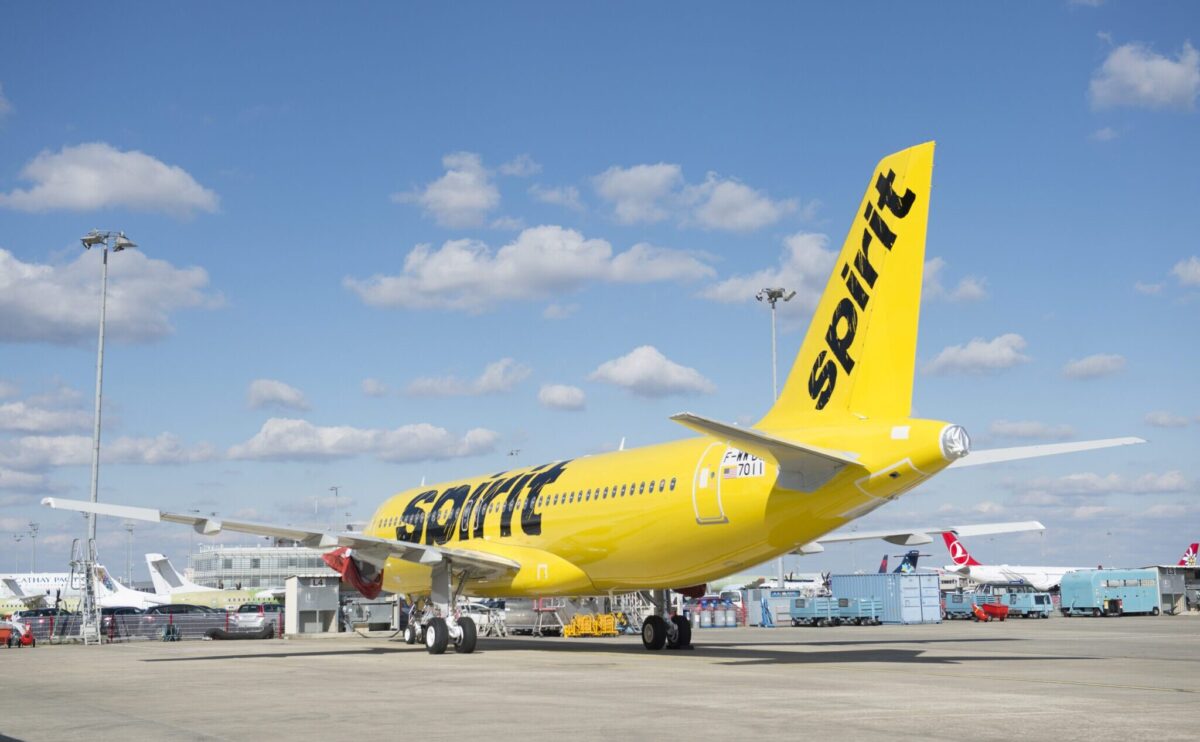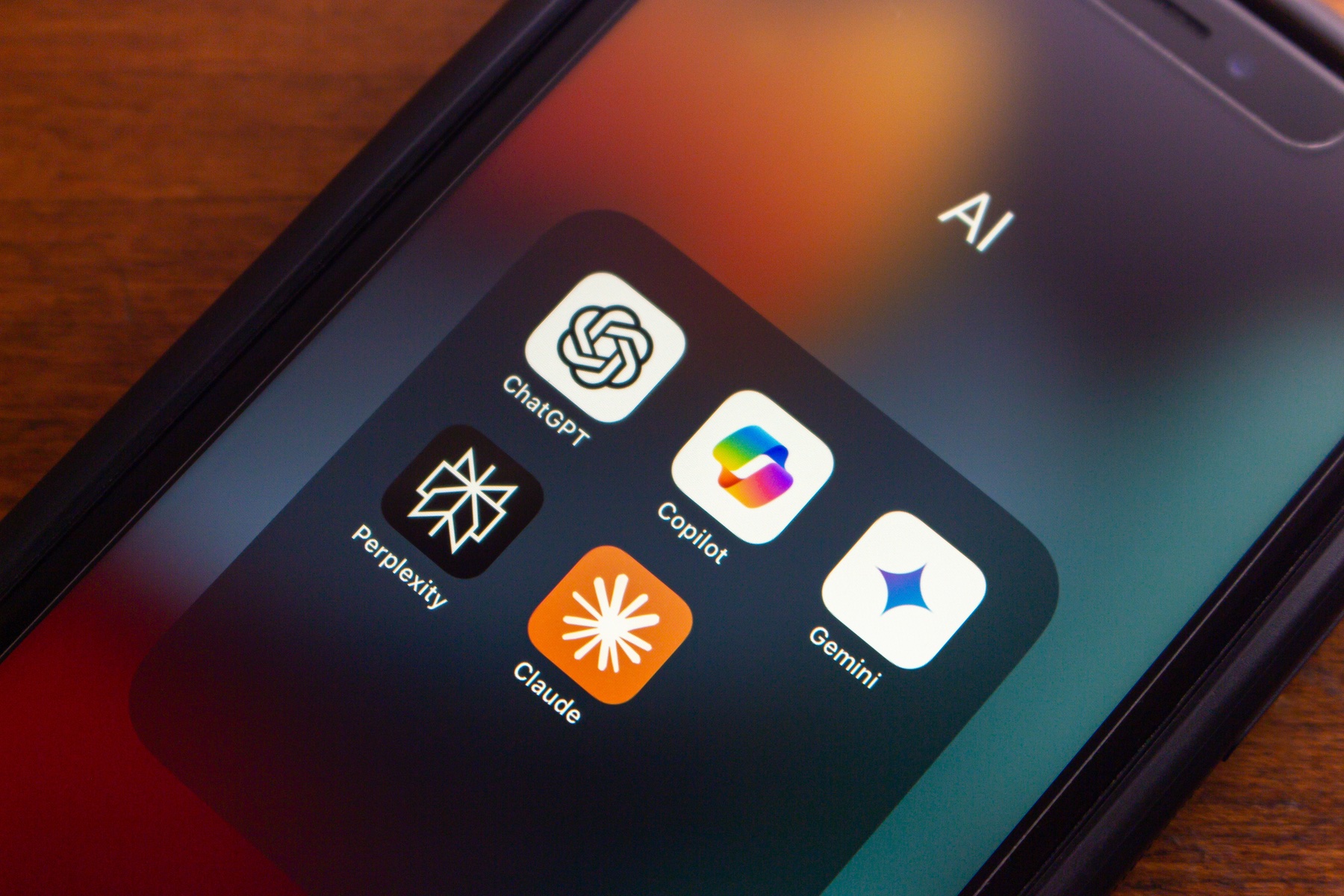How Royal Caribbean Wants to Make Smart Ships Smarter

Skift Take
Two years ago, Royal Caribbean International introduced Quantum of the Seas as the "world's first smartship," complete with faster-than-ever Wi-Fi at sea, robotic bartenders, virtual balconies and RFID luggage tags.
Mike Giresi thinks that was a great start, but the new senior vice president and chief information officer at Royal Caribbean Cruises believes there's much more the company can do when it comes to technology on and off ships.
Giresi joined Royal Caribbean in the fall after working as CIO at companies including Tory Burch, Direct Brands, Inc., and Godiva Chocolatier.
He said he had been on a couple of cruises before getting the job at Royal Caribbean, but didn't consider himself "a lifetime cruiser." Still, the opportunity to work in an industry that provides so much access to customers appealed to him.
"Here are folks that are spending their discretionary time and money on our brand; there is so much we can do for them," he said. "We build these engineering marvels that are by far, the very best products in our industry. The fact is, we're kind of a tech company, so having the opportunity to test and trial and do all kinds of things here was incredibly attractive to me, and that's really what brought me here."
Giresi spoke to Skift recently about onboard Wi-Fi, self-service for cruise passengers, and why robots won't be taking over ships anytime soon.
Skift: Your background includes time as CIO at fashion and food companies, so I'm interested in why the cruise industry was an appealing next step for you, and also what the unique challenges are for cruise that you didn't encounter in previous roles?
Mike Giresi: I think primarily the whole concept of having access to your guest and immersing them in a brand experience was really attractive to me. I've worked in primarily direct-to-consumer businesses for the majority of my career and I think that there's very few brands that get to spend as much time with their guests over an extended period of time like we do.
Because of that, and the things that we can do to both drive experience and create opportunity for all stakeholders is very unique, that was one of the primary reasons that I got really excited about it.
I think that the challenges are interesting. The primary one would be the fact that you're supporting what is a floating city. That there's connectivity and information privacy control, all your security challenges are amped up because you're not talking about a physical location that's stationary....
I think that what we have to be able to do is understand that the product is really the product on the water and that product needs to be the focus of how we deliver and can enable technology experiences. It's not the shore side. The shore side needs to support that product versus the opposite.
Skift: The Royal Caribbean International brand itself talks a lot about its smart ships. I know with the most recent class there was a lot of new technology. Where do you go from there as you're thinking about innovating for the company, how do you get smarter? How do you build on what the last smart ship was?
Giresi: From my perspective, I think the smart ship was a great start in terms of creating a more digitally capable experience, but I don't know that we created smart capabilities throughout the entire ship.
A lot of it was really focused on certain aspects of the guest experience. I think some of it ended up being a little bespoke, in terms of how it felt from an experience perspective. I think the foundation is there, but I think, what we need to do now is probably create technology advancement for not just the guests, but also the crew, and create kind of an ecosystem that allows the crew to more successfully support and please the guests, and that the guests can navigate the experience as more of a holistic vacation if you will, versus different aspects of what's on a cruise ship.
I think one of the challenges we have is, sometimes it may feel that although the ship is one entire entity, it doesn't feel like all the services have been integrated from a technology perspective. I think that what we could do much, much more effectively is, by integrating how the operations support that aspect and how we deliver that experience, [it] can be much more immersive, in terms of someone being able to direct that more subjectively from their own curation. We can also have the capacity to optimize how we deliver it. To me, there's all kind of opportunities to take it forward. I think it was a great start, but with a lot of opportunity to evolve.
Skift: Any specific examples that you guys are tossing around?
Giresi: The time in which we allow people to more or less select options for their vacation can be significantly improved. Right now, up until 48 hours, you can make changes, then you can't until you get on the ship and that's not really effective. I think that there's opportunity to improve how services are provided on the ship. Everything from hospitality through what we consider your housekeeping activities. All these things have the potential to be, I just think, evolved from an experiential perspective.
Technology is part of it, but obviously, there's process and operating logs that need to come along with it. The fact that we have the technology on the ship should enable us to create a better experience, so that the guests can spend more of their time relaxing and enjoying and navigating all the experiences that are available to them, and the crew can help them do that, versus it being a trip down to guest services or a phone call or having to take time away from something you really want to do to something you prefer not to do.
Skift: Maybe thinking a little farther into the future, what do you think is the next frontier for technology on cruise ships? Ten years in the future, what do you think is out there?
Giresi: Well, this is complete speculation, right? The way that technology changes is so exponential, I think that the concept of being constrained to what's on the ship is going to evolve.
What I mean by that, and whether it's true what I would call augmented reality, or some sort of ability to almost transport somebody somewhere, in a completely full-life experience outside of leaving the ship, I think there's things that we can do that will expand the reach of the ship itself and can create experiences that would, for individuals that might be concerned that staying on the ship for multiple days can be very claustrophobic, could open up all kinds of interesting opportunities. I also just think, quite frankly, that the services that we'll be providing will continue to evolve.
I think this concept of being constrained to a floating vessel will evolve tremendously, and technology will enable that. I think that it will be really interesting to see how it plays out.
Skift: How much better do you think onboard Wi-Fi can get? How quickly do you think it can get a lot better?
Giresi: I think it can get a lot better. I think it will. There's a lot of competition being created in that particular industry segment, and I believe that as we become more effective in terms of how we provide infrastructure services to the ships, the speed and the performance can improve.
I think our ships now are quite, quite far ahead of most of our competition in terms of what people can do on the ships. The majority of our ships are completely capable of streaming video, doing real-time chat and FaceTime-type services. There's very few things you can't do on our ships, from a majority of the fleet perspective.
I think it can be better because I think we have the capacity to do more with that bandwidth that's available. I think that it's going to be up to the competition [between technology providers] to fight that out and enable us to go forward. We work closely with them, obviously, in terms of trying to figure out some of this technology, but I definitely think there's opportunity for sure.
Skift: As people are getting more connected at sea, they have the ability to do a lot more while they're on board. What do you think is the potential for data that's useful to the cruise company? I don't know if you're able to tell what they're doing with all that bandwidth, or if it's just that's there's more ability to post on social media, or for people to be talking in real-time about what they're doing on the ship that you can learn from.
Giresi: I think there's no question that we have opportunities to do more with the information that we gather. The reality is, anyone who's using a smart phone knows that information is captured, almost real-time, throughout the day, and not just by the cruise companies.
I think what we have to be very thoughtful about is what are we trying to do with this information, and how do we use it to enhance the guest experience. What I mean by that is, having really authentic and genuine communication, based on what people are truly interested in and helping them find better ways to spend and utilize their time.
An example of that would be the following: Let's say for example, we have a guest who is thinking about having a dinner at a certain restaurant at a certain time, and we know that that restaurant is not going to be available, based on overall demand, and also interest in that. We can proactively reach out to that person and say, 'Hey, look, we know you might be interested in having dinner at this location, we've taken the opportunity to provide the following times for you, based on the current traffic pattern. If these work for you, feel free to choose one and we'll see you at that time. If not, feel free to reach out to us and we'll accommodate.'
That type of stuff is very meaningful and people would appreciate that. What we cannot do is start spamming them with all kinds of offers that I think are just going to drive them crazy and that are going to just pollute the environment, if you will.
We obviously sell retail on our ships. We have retail stores that are not our brands, obviously. If someone is interested in one of those brands, what can we do to enhance that opportunity so that it's something that they really are truly interested in pursuing? If we do that well, I think we will create a more personalized experience that will be of value. If we just use the information to, quite frankly, litter their inbox and/or text messaging or whatever other messaging system they're using with offers that are not meaningful, I think that we will lose people. Quite frankly, I think that it would be very damaging to the brand.
Skift: What do you hear that guests really want, when it comes to tech that isn't available yet on ships?
Giresi: They want Wi-Fi to be free. They don't want to pay for it, that's for sure. Of course they would like to have, what I think is, that they want to be able to do more things, from a self-service perspective. They want it all to be integrated.
For example, if I update something somewhere, whether it's a reservation and/or time or something, that everything else just kind of adjusts or moves. They don't have to follow up, so if I had a spa appointment at 8 o'clock, and I have a dinner reservation at 7, but it turns out that restaurant's no longer available, only available at 8, well, let us automatically move your spa appointment versus you having to chase that down.
I think it's all about being proactively engaged around what someone has identified as their itinerary and how we can help them maximize that. That's what I think people are looking for and I think that we're on our way. I don't think we're quite all the way there yet, but we'll get there soon. I think technology will be a key enabler of that.
Skift: Artificial intelligence and robots are a lot of, maybe like the far- off sci-fi chatter in travel, and I know Royal Caribbean has done their part with bartenders. Do you think there's a more advanced use for robots or just AI in general? Or artificial intelligence-powered robots in cruising that will have a more advanced use than how it's being used now?
Giresi: I think there's lots of ways that we could possibly use robotic technology. I think ultimately, one of the key things about our brand is the fact that our crew is very engaged with our guests. The majority of our guests love our crew, and in fact, actively seek out the crew. So this concept of replacing crew with robots probably is not going to be something that really works for our brand, because part of the experience is the crew interaction.
However, there are things that we're doing, that I'm sure people are spending a lot of time on, in terms of heavy lifting of, it could be towels, it could be things like this.... I think there's ways to automate certain aspects of what we do that can be beneficial, not just to the guests, but also to the crew. It can help save them time and save them a lot of the pain associated with some of these tasks, that could be beneficial for sure.
I cannot envision a cruise ship that you walk on and the first person that greets you is a robot and they take you to your room and they're kind of like the Jetsons-type thing. I don't see that. I think that our crew plays too integral of a role in that guest experience.




